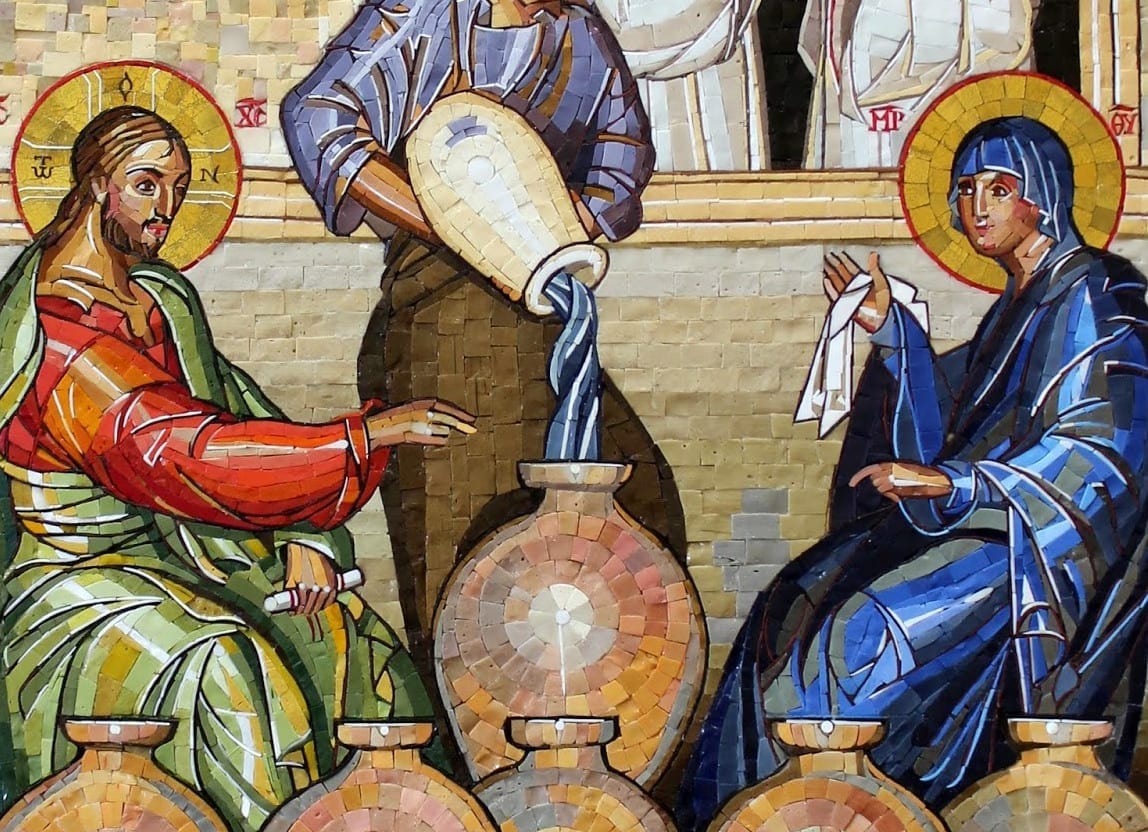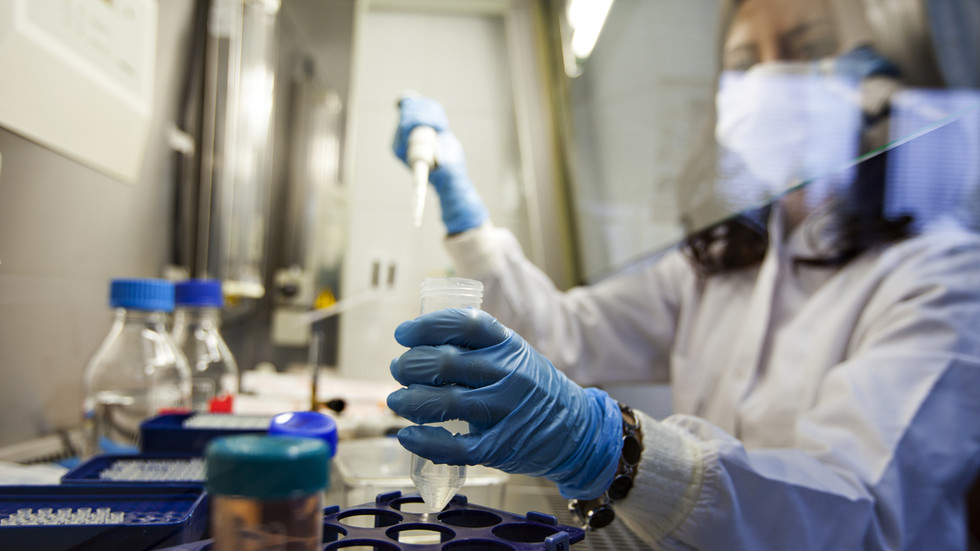[Catholic Caucus] The Sacred Page: The Bridegroom Revealed: Readings for the 2nd Sunday of Ordinary Time
The Sacred Page Blog ^ | January 18, 2019 | Dr. John Bergsma
Posted on 01/18/2025 3:19:03 PM PST by fidelis

By Dr. John Bergsma
This Sunday we remain in the afterglow of Epiphany, the celebration of the “manifestation” of Jesus’ divine glory. [Greek epi – phaino = “shine upon” = “reveal, manifest.”] Epiphany, which once was its own season (like Advent or Christmas), has often been associated with three events from the Gospels: the Magi, the Baptism, and the Wedding at Cana. These are the first events that reveal or “manifest” Jesus’ glory in the Gospels of Matthew, Mark, and John, respectively. Certain well-known Epiphany hymns (e.g. “Songs of Thankfulness and Praise”) make reference to all three events.
In Year C, the Church quite consciously offers us the Wedding at Cana for our meditation on the Sunday immediately following the Baptism. By happy Providence, this year we are able to ponder the Magi, the Baptism, and Cana on successive Sundays.
The Readings for this Lord’s Day highlight Jesus as our spiritual bridegroom.
1. The First Reading is the same used at the Christmas Vigil, Isaiah 62:1-5:
For Zion’s sake I will not be silent, for Jerusalem’s sake I will not be quiet, until her vindication shines forth like the dawn and her victory like a burning torch.
Nations shall behold your vindication, and all the kings your glory; you shall be called by a new name pronounced by the mouth of the LORD. You shall be a glorious crown in the hand of the LORD, a royal diadem held by your God. No more shall people call you “Forsaken,“ or your land “Desolate,“ but you shall be called “My Delight,“ and your land “Espoused.” For the LORD delights in you and makes your land his spouse. As a young man marries a virgin, your Builder shall marry you; and as a bridegroom rejoices in his bride so shall your God rejoice in you.
The prophet speaks to the people of Israel while they are in exile, and promises that in the not-to-distant future, the LORD will renew his affection for them, and take them back into a covenant relationship with Himself.
The heavy use of marriage metaphors in this passage stems from the fact that marriage was a covenant in Israelite culture, and thus a good image of the covenant relationship between the LORD and Israel.
The prophet refers to the people of God as “Zion” and “Jerusalem,” using the capital city as a personification of the nation as a whole. She is also personified as a woman, sometimes elsewhere called “daughter Zion” or “virgin daughter of Zion.” In previous posts we have commented on the Marian sense of this personification. Mary, the virgin daughter of the House of David whose royal compound was on the hill of Zion, is a personal realization of this “lady Zion” the prophet speaks of.
Our Mass translation says, “As a young man marries a virgin, your Builder shall marry you,” but many other English translations, as well as the Vulgate and the Septuagint, read, “As a young man marries a virgin, your sons shall marry you.” This is because the Hebrew consonants for “your builder” and “your sons” are the same (b-n-y-k), so it cannot be determined which meaning the ancient prophet had in mind. Both are theologically suggestive.
“Your Builder shall marry you,” suggests that God, the builder of Jerusalem, shall renew his loving relationship with his people and enter into a new covenant with them. Alternately, it was the Davidic kings, starting with David and Solomon, who built up Jerusalem, so it may suggest a return of the Son of David to renew his covenant of kingship with the people (compare 2 Samuel 5:1-3). Finally, “Your builder shall marry you,” recalls the creation of Eve by God, since Eve was literally “built” (b-n-h) out of Adam’s rib (Genesis 2:22). “Lady Jerusalem” here is a kind of New Eve, a new sanctuary-bride.
On the other hand, the translation “Your sons shall marry you” suggests that the young men of Israel shall renew their loyalty to their people and their Holy City, Jerusalem, and commit themselves and all their youthful strength for her upbuilding and welfare.
All the different senses of “builder” or “sons” have a certain resonance with the Gospel reading. The Church has rightly seen in the Wedding at Cana a certain public revealing of the New Adam (Christ) and the New Eve (Mary). Mary is a type, icon, and embodiment of the Church—what is true of her personally tends to be true of the Church corporately. In Mary we see one whose “builder” has espoused her, because the Creator Spirit is also her Mystical Spouse. Though Eve was not espoused by her “builder,” Mary is. Likewise, though Jesus is her son, Mary as the first Christian and icon of the Church also knows her son as her spiritual Bridegroom (Ephesians 5:21-33). This is also true of the Church: the Church gives birth to Christ in the world through the administration of the sacraments, especially Baptism. So the Church is mother of the “little Christs”, that is, Christians. Yet the Church also knows Christ as her Spouse.
2. Responsorial Psalm: Psalm 96:1-2, 2-3, 7-8, 9-10
℟. [3] Proclaim his marvelous deeds to all the nations.
Sing to the LORD a new song;
sing to the LORD, all you lands.
Sing to the LORD; bless his name.
℟. Proclaim his marvelous deeds to all the nations.
Announce his salvation, day after day.
Tell his glory among the nations;
among all peoples, his wondrous deeds
℟. Proclaim his marvelous deeds to all the nations.
Give to the LORD, you families of nations,
give to the LORD glory and praise;
give to the LORD the glory due his name!
℟. Proclaim his marvelous deeds to all the nations.
Worship the LORD in holy attire.
Tremble before him, all the earth;
Say among the nations: The LORD is king.
He governs the peoples with equity.
℟. Proclaim his marvelous deeds to all the nations.
Psalm 96 comes from Book IV of the Psalter, the book which seems to reflect theologically on the reality of the exile of God’s people as a result of their covenant-breaking. What is Israel to do now that they are scattered among the nations or “Gentiles”? Psalm 96 gives an answer “Sing to the LORD a new song,” and “Tell [the LORD’s] glory among the nations, / among all peoples, his wonderous deeds.” The destruction of God’s people as a nation and their scattering among different ethnic groups provides an opportunity for evangelism. The same is true today of God’s people, the Church, dwell in a spiritual exile on this earth, far from our heavenly homeland” “Our citizenship is in heaven.” (Phil 3:20, NABRE). Yet our exile in this “valley of tears” provides an opportunity to testify to the glory and salvation of the LORD to everyone. We are still in the afterglow of Epiphany with its theme of the kings of the nations coming to worship Christ. Surely there is no greater “good news” to share with others than that God the creator loves us so much he wishes to espouse himself to us forever.
3. The Second Reading is 1 Corinthians 12:4-11
Brothers and sisters: There are different kinds of spiritual gifts but the same Spirit; there are different forms of service but the same Lord; there are different workings but the same God who produces all of them in everyone. To each individual the manifestation of the Spirit is given for some benefit. To one is given through the Spirit the expression of wisdom; to another, the expression of knowledge according to the same Spirit; to another, faith by the same Spirit; to another, gifts of healing by the one Spirit; to another, mighty deeds; to another, prophecy; to another, discernment of spirits; to another, varieties of tongues; to another, interpretation of tongues. But one and the same Spirit produces all of these, distributing them individually to each person as he wishes.
In keeping with the “Epiphany” or “manifestation” theme, the Church turns our thoughts in this Reading from how Jesus’ divine glory was manifested (Magi, Baptism, Cana) to how the glory of God is manifested in the mystical body of Christ, which is the Church. The glory of the LORD continues to be revealed in us. “To each individual the manifestation of the Spirit is given for some benefit.” The different “spiritual gifts,” “forms of service,” and “workings” distributed among all Christians show that God is still at work among us. Unfortunately, in most local parishes, the spiritual gifts of many believers lie dormant, because they have had little or no encouragement or training in how to identify the gifts they have receive from the Spirit and how to employ them in the building up of the body of Christ. Instead, we have a “professionalized” view of ministry in which the pastor, assisted by paid staff or some religious, do all the “ministry.” This text from St. Paul challenges us all, both clerics and laity, to rethink how we organize our parishes, and to make an examination of conscience as to whether (1) we fully recognize that every believer has a “manifestation of the Spirit” for the service of the Church and (2) if we are offering any practical means by which the lay faithful are helped to recognize, develop, and employ these spiritual gifts.
4. The Gospel is the account of the Wedding at Cana: John 2:1-11
There was a wedding at Cana in Galilee, and the mother of Jesus was there. Jesus and his disciples were also invited to the wedding. When the wine ran short, the mother of Jesus said to him, “They have no wine.” And Jesus said to her, “Woman, how does your concern affect me? My hour has not yet come.” His mother said to the servers, “Do whatever he tells you.” Now there were six stone water jars there for Jewish ceremonial washings, each holding twenty to thirty gallons. Jesus told them, “Fill the jars with water.” So they filled them to the brim. Then he told them, “Draw some out now and take it to the headwaiter.” So they took it. And when the headwaiter tasted the water that had become wine, without knowing where it came from— although the servers who had drawn the water knew — the headwaiter called the bridegroom and said to him, “Everyone serves good wine first, and then when people have drunk freely, an inferior one; but you have kept the good wine until now.” Jesus did this as the beginning of his signs at Cana in Galilee and so revealed his glory, and his disciples began to believe in him.
There is far more theological and Scriptural symbolism going on in this passage than I can adequately discuss here. Being selective, let’s note the most obvious: Jesus reveals himself here as the “ultimate Bridegroom.” The responsibility of the bridegroom at these ancient weddings was to provide the wine. We can see that in the text, because when the MC tastes the wine, he immediately calls the bridegroom, assuming that he was the one who procured the vintage.
By taking on the bridegroom’s responsibility to provide wine, and doing so in a spectacular style (120-180 gallons of fine French import!), Jesus reveals himself as the Bridegroom, one with whom no other mere mortal can compete. He is the Bridegroom who is both the LORD and the Son of David simultaneously, fulfilling the subtle nuances of the prophecies of Isaiah and of the other prophets who spoke of the renewal of God’s nuptial love for Israel in the future.
In our First Reading, the prophet said to ancient Jerusalem, “you shall be called by a new name.” This “new name” is the Church. In keeping with the teaching of the Apostles, the early Christian community understood that a kind of transformation had taken place in the people of God: a national, ethnic, and geographical community had become international, spiritual, and trans-spatial: the “heavenly Jerusalem” (see Hebrews 12:22-24; Revelation 3:12; 21:2-10). Yet the two communities were joined as truly one, anchored by the core of believers who belonged to both covenant eras, most notably Christ Himself, with his Holy Mother, the Apostles, John the Baptist and hundreds of thousands of other baptized believers from the ethnic people of Israel (the 144,000 from the twelve tribes, Revelation 7:4).
So in the Wedding at Cana, Jesus reveals himself as the Bridegroom of the Church, our own spiritual spouse. Baptism is the nuptial bath, the Eucharist is the Wedding Feast, where we receive the Body of our Bridegroom and unite his body with ours.
Our faith is one of intense intimacy. God loves us like a bride. He “rejoices” in us, takes delight in us, each one of us individually.
In my days as a non-Catholic Christian pastor, I encouraged people to have a “personal relationship with Jesus,” which indeed is, properly nuanced, the goal of our existence. But nothing is more personal or intimate than communing with Jesus in his very Body and Blood in the Eucharist.
Some persons who have left the Church for other Christian groups have told me they “found Jesus” in another fellowship, and I have asked in return, “What did you think was going on all those years when you were coming forward at communion to take the Body of Christ?” I am honestly curious to know, but I don’t usually get an answer to that question. I suspect the spiritual situation for them was not simple. There may have been grave catechetical deficiencies at their parish, perhaps compounded by poor example from other parishioners or even the clergy. Honestly, too, some persons, when they were young, may not have taken much responsibility to learn their faith or take advantage of the opportunities for spiritual growth that were available to them.
However that may be, in the Readings for this Sunday’s Mass, the Church proclaims anew the best news possible: God loves us, God reveals Himself in Jesus Christ, who comes to us “dressed as a Bridegroom,” with all the intensity of love and desire to enter into a relationship of intimacy with each one of us. The highpoint of this relationship is to receive Jesus in the Eucharist, the “source and summit” of our life.
But on a practical level, our reception of Jesus in the Eucharist cannot be the only aspect of our “spousal” relationship, any more than a once-a-week embrace would suffice to make a marriage work. The reception of Jesus our Bridegroom in the Eucharist should be part of a lifestyle characterized by daily conversation with him through prayer and the reading of His word.
TOPICS: Catholic; Prayer; Theology; Worship
KEYWORDS: catholic; christian; sacredpage; scripturestudy

Click here: to donate by Credit Card
Or here: to donate by PayPal
Or by mail to: Free Republic, LLC - PO Box 9771 - Fresno, CA 93794
Thank you very much and God bless you.
As preparation for this coming Sunday Mass Readings. Please FReepmail me if you would like to be added or removed from the ping list.
Please keep in mind that this is a Catholic Caucus/Devotional thread for the purpose of prayerful reflection on the Sacred Scriptures and is closed to debate of any kind. Per FR policy on Religion Caucus threads, off-topic, argumentative, and abusive comments are not allowed and will be submitted to the Mods for deletion. Thanks, and God bless you and have a holy Lord’s Day.
1 posted on 01/18/2025 3:19:03 PM PST by fidelis
To: fidelis; nicollo; annalex; Cronos; Salvation; MurphsLaw; pax_et_bonum; Hieronymus; Huskrrrr; ...

Pinging the weekly Sacred Page list!
2 posted on 01/18/2025 3:20:36 PM PST by fidelis (Ecce Crucem Domini! Fugite partes adversae! Vicit Leo de tribu Juda, Radix David! Alleluia!)
3 posted on 01/18/2025 3:23:42 PM PST by fidelis (Ecce Crucem Domini! Fugite partes adversae! Vicit Leo de tribu Juda, Radix David! Alleluia!)
Disclaimer: Opinions posted on Free Republic are those of the individual posters and do not necessarily represent the opinion of Free Republic or its management. All materials posted herein are protected by copyright law and the exemption for fair use of copyrighted works.
FreeRepublic.com is powered by software copyright 2000-2008 John Robinson

 By Free Republic | Created at 2025-01-18 23:39:19 | Updated at 2025-01-22 12:52:41
3 days ago
By Free Republic | Created at 2025-01-18 23:39:19 | Updated at 2025-01-22 12:52:41
3 days ago








